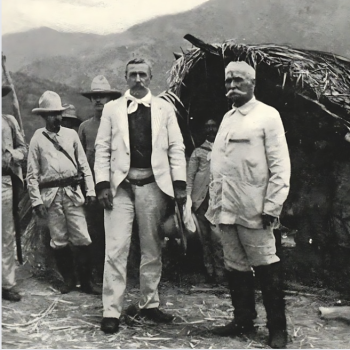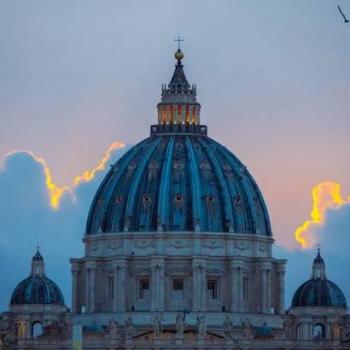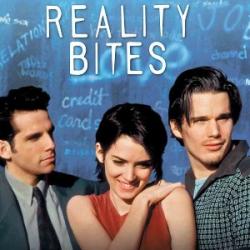That is why the characters found in Dante's hell are merely suffering the unfolding, the natural working out, of the decisions freely made in life. Paolo and Francesca, for example, were adulterous lovers. They chose to submit to the winds of passion that incited them to faithlessness; now they are weightless spirits, wafted to and fro eternally by the gusts that blow through hell. As they did not exercise control over their actions on earth, they cannot control the winds that buffet them now. No judge was necessary, and no God decreed their fate. If they are punished, it is a punishment of their own making.
We find this theme repeated throughout the circles of hell. Those who sowed discord and division, find themselves bodily sundered in twain. Despising unity and harmony, they literally inherit the disunity and disharmony upon which they set their hearts. Those who, in the Revelator's words, were neither hot nor cold in life, but pursued a safe, middle path devoid of either good or evil, find themselves eternally in the press of a huge crowd, following a fluttering banner to and fro, never to find a place in hell, and without hope of heaven. Astrologers and false prophets walk eternally with their heads on backwards. Because they chose to look elsewhere than to the real source of truth, so will they forever be barred from approaching whatever truth they now behold. Through examples poignant and playful, Dante drives home the truth that hell is a prison we build for ourselves one brick and one choice at a time.
The experience of sin, then, is not an unalterable state we inhabit; it is a felt disharmony. The unhappiness of sin is nothing more than our spirit rebelling against a condition alien to its true nature. We have fallen out of alignment with ourselves, and with that God whose love we crave and whose nature we share. The separation from God is not a punishment inflicted by God, but the consequence of an existential reality of our own making. We have chosen to exist in a condition "contrary to the nature of God," as an ancient American prophet named Alma explained. We are acting "contrary to the nature of that righteousness" which is the root of God's identity and the source of His perfect joy.
God's supreme happiness is not an arbitrary category of the divine nature; it is inseparable from the perfection of those attributes that He chooses to manifest through His actions—actions that He invites and empowers us to emulate. The alienation in need of repair is not a product of God's arbitrary decree, or His anger or desire to punish. Neither is it purely a matter of human guilt or shame before the Divine Presence. It is a product of a freely chosen sinful condition that is incompatible with God's holiness.
We experience this disharmony as guilt. We can treat guilt as an emotional inconvenience and tolerate or rationalize it until we grow spiritual calluses to deaden the pain. Or, we can treat guilt as a healthy prod to action, as a pain that signifies a deeper injury in need of remedy—an actual injury signifying real spiritual harm. Guilt is what we feel when we have positioned ourselves in opposition to laws and principles that exist eternally and independently of the mind.
Commandments are the expression of those eternal laws that will lead us to a condition of optimal joyfulness. They are the beacon lights of greater realities that define the cosmic streams in which we swim. Operating in harmony with those realities, as a swimmer who works with the current rather than against it, empowers and liberates us to fill the measure of our creation. We may ignore them in the illusion of utter self-sufficiency and independence. But we are then no more than a swimmer thrashing furiously, confident of our powerful strokes, but swept along nevertheless, a captive of the prevailing tides.
In a culture increasingly infatuated with the rhetoric of choice and freedom, we resist the obvious. We find ourselves in a universe pervaded by laws that define the relationship of action and consequence. Some are manmade: speed and you get a ticket; rob and you go to jail; break curfew and you're grounded. Some are physical: let go of a rock and it drops; expose potassium to air and it forms hydrogen gas; mix baking soda and vinegar and you get a frothing pot worthy of the witch's concoction in Shakespeare's Macbeth. And some laws are moral: nurturing hatred cankers the soul; practicing kindness and forbearance develops serenity.
Parents and police officers alert us to the first category. Physicists and chemists may give us fluency in the second. But nothing short of trial and error will convert us to the unyielding strictures of the third. To be adept at the first entails outward behavior. Mastering the second challenges our mind. But to live in harmony with the moral law of the universe requires body and soul, heart and mind, the will and the affections of the undivided self. This is the meaning of Jesus' words that living the highest and holiest law, loving God, requires "all your heart, and . . . all your soul, and . . . all your mind."




